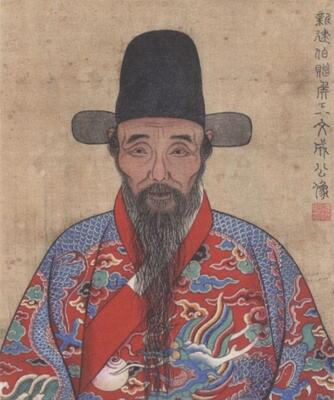The Department of East Asian Languages and Civilizations welcomes the launch of the first Global Marie Curie Project to be hosted by the Department. The project entitled “RIGHT: The Right in Human Rights: Aristotelianism and Neo-Confucianism at the basis of the EU-China Dialogue” is a 3-year research project fully funded by the European Union. The first two years will be carried out at the EALC Department of Harvard University and the third year at the Department of Philosophy and Cultural Heritage of the Ca’ Foscari University of Venice. The Principal Investigator is Anna Irene Baka and the Supervisor at the EALC is Michael Puett.
The project aims to provide a definitional human rights framework on the basis of Aristotelianism and Neo-Confucianism, thus filling a major gap in human rights theory and practice and offering a basis for the sustainable continuation of the EU-China Human Rights Dialogue, which is currently at a stalemate. A reason for this impasse has been that, whereas the EU adopts a liberal view of human rights, the Chinese side argues that human rights should primarily improve peoples’ living standards, thus revealing a fundamentally different perception of human rights between EU and China. Moreover, although there is a plethora of ad hoc human rights’ definitions and categorisations, no comprehensive definitional human rights framework currently exists to facilitate the political dialogue.
In order to fill the gap, RIGHT deploys, for the first time in legal scholarship, two major, premodern philosophical traditions bringing together the Eastern and Western worldviews: Aristotelianism and Neo- Confucianism (Daoxue 道学). Given that the EU is currently negotiating with China a comprehensive agreement on investment, it is vital, also in view of the Belt and Road Initiative, to engage with China in a meaningful and sustainable way, by developing and sharing a solid definitional human rights’ framework as common ground and basis for further dialogue. The project becomes particularly timely due to the revival of Confucianism in Chinese politics.
|
|
|
According to the project, Aristotelianism and Neo-Confucianism have striking similarities. Firstly, they share a common inductive approach: Aristotle’s induction or epagōgē (ἑπαγωγή) reaches out to the to ti ên einai (το τί ἦν εἶναι), i.e. the definition of things through a type of insight that leads to essential meaning, while Neo-Confucianism introduces the idea of pure knowing or liangzhi (良知), also a type of inductive reasoning suggesting that all ideas have essential content, the Li (理). Secondly, both traditions offer comprehensive accounts of virtue ethics and are structured around the idea of inter-subjectivity, thus addressing the empathetic deficit of legal modernity and offering better terms for a sustainable, global approach to human rights. RIGHT evaluates the convergences and divergences between the Aristotelian epagōgē and the Neo-Confucian liangzhi to configure a common conceptualization of human rights that will serve the political dialogue between EU and China.
The project has so far produced an invited lecture at the Department of Juridical Sciences "Cesare Beccaria" of the University of Milan entitled "A Belt and Road from Stagira to Zou 鄒:Aristotelianism and Neo-Confucianism at the basis of the EU- China Human Rights Dialogue". Dr. Baka’s paper entitled “An Aristotelian and a Confucian challenge to the political teleology of modernity” was accepted for presentation at the annual meeting of the Pacific Division of the American Philosophical Association (APA) in April 2023 in San Francisco.
 Anna Irene Baka |
Anna Irene Baka is currently a Marie Skłodowska-Curie Global Fellow at the East Asian Languages and Civilizations Department of Harvard University and the Department of Philosophy and Cultural Heritage of the Ca’ Foscari University of Venice. Her Global Marie Curie project RIGHT received an evaluation score of 99% amongst the three independent external examiners appointed by the European Commission.
|
Dr. Baka completed her LL.B. at the National and Kapodistrian University of Athens, Greece. Previously a holder of the Hellenic National Scholarship, she studied European, International and Comparative Law at the Free University of Brussels, Belgium. In 2016 she completed her PhD in the Philosophy of International Law at the University of Hong Kong (HKU) with a doctoral thesis entitled “The Dialectic of the Cave: Self-Determination, Constitution and the Phenomenology of Deprivation”. She is a licensed Greek jurist and has worked for several years as legal advisor to the National Human Rights’ Institution of Greece. She has also worked for the European Commission, and has advised the Chinese Ministry of Foreign Affairs and the Hellenic Parliament.She has done extensive research on national and international conflicts and conducted archival research on the Greek Civil War, the 1883-1885 Sino-French War in Vietnam and the South China Sea Maritime Dispute. Before embarking on her MSCA project, Dr. Baka completed a 2-year postdoctoral research on the application of Edmund Husserl’s Phenomenology on Law and Rights at the Department of Philosophy of the University of Crete, Greece. She is co-editor of a collective volume on the Phenomenology of Law and Normativity, currently under contract with Springer (forthcoming 2023).
Dr. Baka has a keen interest in comparative philosophy, the philosophy of law, the history of legal ideas, as well as interdisciplinary approaches to law. She maintains a special interest in the Chinese ideology and take of international law, from the Opium wars to date. An Aristotelian at heart, Dr. Baka is a strong proponent of the practical use of philosophy in society and politics. She is also an advocate of the reversal of the current crisis in the humanities by means of reinstating the role of philosophy as a guide to human action. To this effect, she considers that Aristotle's practical reason and Wang Yangming's (王阳明) unity of knowledge and action (知行合一) is wisdom that needs to be rediscovered and lived through.


